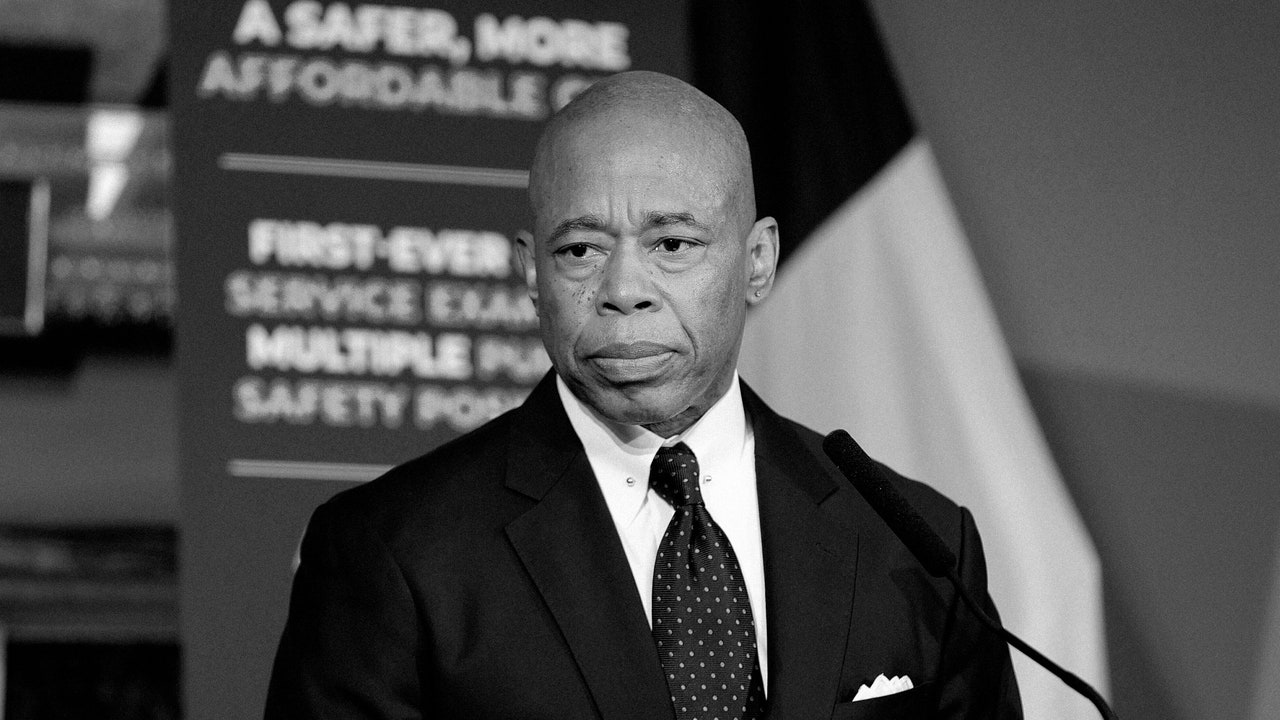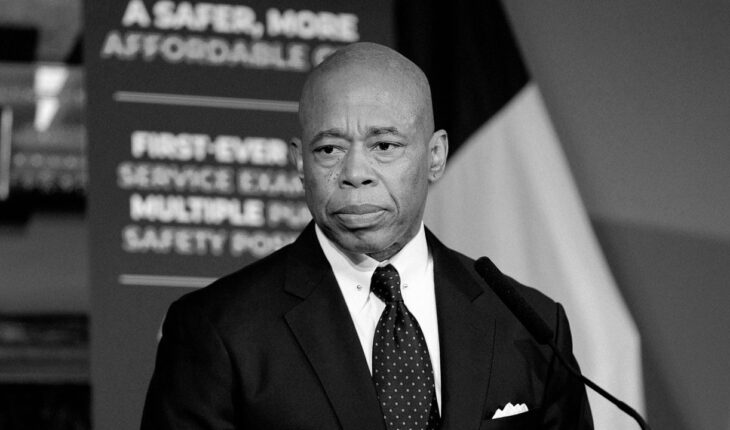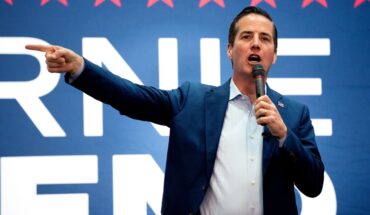
New York, 2016. Donald Trump was visiting Trump Tower just after winning a shocking victory in a presidential campaign in which he had demonized immigrants and threatened to deport millions of them. The mayor, Bill de Blasio, went to meet with the president-elect to deliver a stern message. “This city…will do all we can to protect our residents and to make sure that families are not torn apart,” he said afterward.
Eight years later, Trump was visiting New York just after winning a shocking reelection victory in a campaign in which he had demonized immigrants and threatened to deport millions of them. This time the mayor, Eric Adams, went to Madison Square Garden to greet Trump ringside at an Ultimate Fighting event. “I didn’t hear exactly what he was saying. But it was something to the tune of ‘You are one of the greatest mayors the city has ever had,’” Adams said, laughing, when asked about the conversation a few days later at a City Hall press conference. “The only thing we were concerned about is, you know, seeing a good fight.”
There are plenty of questions about Adams’s approach to Trump. But the high-stakes one for thousands of undocumented New Yorkers is whether Adams will put up a good fight if Trump and his border czar, Tom Homan, try to haul people out of the city next year—and whether the mayor’s personal legal problems will color his official reactions. For the moment, there are encouraging logistical preparations underway at the dozens of city agencies and departments that touch the lives of immigrants. First deputy mayor Maria Torres-Springer and her staff have been leading meetings, at least weekly, to strategize possible responses to everything from Trump administration demands for IDs to raids by the US Immigration and Customs Enforcement (ICE). “The bureaucracy and the administrators are trying to follow mandates and also understand what is coming at us and trying to do the right thing,” says Alexa Avilés, who chairs the city council’s committee on immigration. One manifestation is the plan being drawn up to close a Brooklyn shelter housing 2,000 asylum seekers. Because the shelter sits on federal land, Trump’s deportation offensive could target it more easily than migrants who are integrated into the general shelter population.
Another important front would be distributing information about New York’s sanctuary city laws, which were strengthened the first time Trump reached the White House. “There is a lot of confusion about what those laws and policies do and don’t do,” says Murad Awawdeh, the president of the New York Immigration Coalition. “The school community needs to know that ICE doesn’t have the right to enter a school building. They don’t have the right to ask for anything without a warrant.” While circulating such information would be a helpful step, Awawdeh and others are deeply concerned about whether the mayor will firmly enforce the sanctuary city laws under pressure from Trump. “Eric Adams is a consistent contradiction,” Avilés says. “He blames migrants and then says, ‘We love migrants.’ He should be talking about the strength of this city, how we are going to protect our people no matter what, and preparing his agencies to do those things rather than placating Trump and playing footsie at an Ultimate Fighting match.”
An Adams insider says the mayor’s stroking is a cagey strategy to head off the worst of what Trump threatens to do. The theory is that instead of antagonizing Trump, as de Blasio did, and provoking attempts at presidential punishment, Adams can play nice and perhaps moderate Trump’s behavior. Flattering Trump’s ego can indeed sometimes be effective. And his rhetoric has at times been harsher than his actions. Yet immigration hard-liners like Homan and Stephen Miller are unlikely to be easily distracted. And a separate, fraught legal-political dynamic is feeding skepticism about the true motivation for Adams’s seemingly low-key approach toward Trump. Adams is under federal indictment for bribery conspiracy, fraud, and illegal campaign donations, and scheduled to go on trial in April 2025—at the same time, he’s attempting to run for reelection. Trump could be an enormous help with the mayor’s legal troubles, whether leaning on the new prosecutor overseeing the case to drop the charges or eventually pardoning Adams, should the mayor—who has pleaded not guilty—be convicted.
Adams has repeatedly dismissed the suggestion that his decision-making as mayor will be influenced by his legal travails. “The mayor’s number one priority is fighting for New York,” says Fabien Levy, the deputy mayor of communications for Adams. Still, other branches of city government are not waiting to see if the mayor will stand up to the president next year. Brad Lander, the city comptroller and a Democratic rival to Adams in the 2025 mayoral race, recently convened a meeting of business, religious, community, and government representatives to discuss how the city best girds itself for a second Trump administration. “I’m glad to see the work that city agencies are doing to get ready,” Lander says. “But there are very likely to be critical moments when the mayor having the back of those agencies—or joining us on the line between a shelter and an ICE raid—will be important. Going to a UFC fight and chumming around with Trump wasn’t a strategy for protecting immigrant families. I read it as an effort by the mayor to protect himself.”





